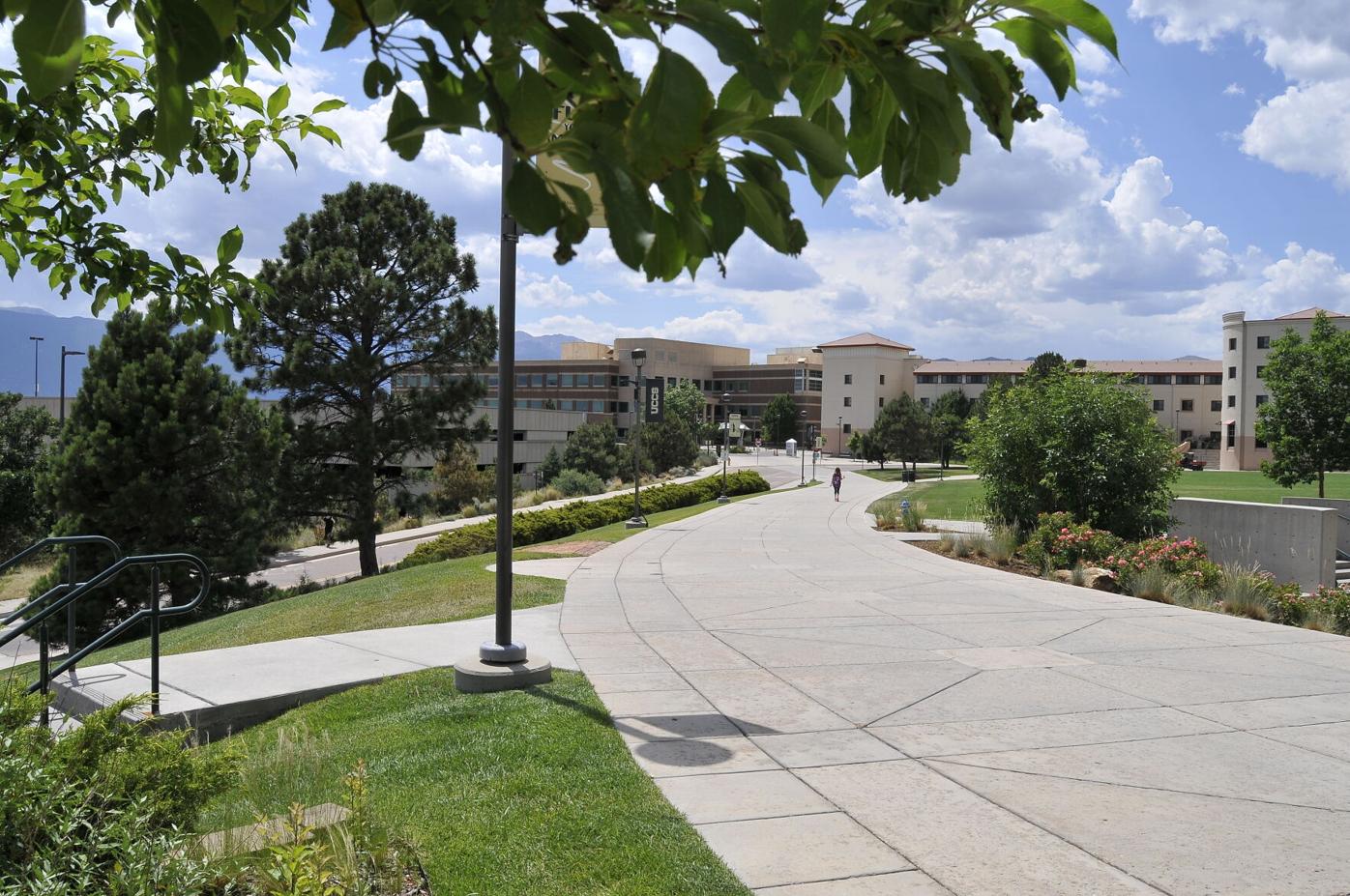Faith and charity intersect with new ‘Religion and Nonprofit’ certificate at UCCS

Nick Smith, The Gazette
As local nonprofits navigate funding and workforce challenges, a new cross-college certificate at the University of Colorado Colorado Springs looks to build on existing partnerships and bolster their volunteerism and employee base, with a focus on charitable giving and religious literacy.
The “Religion and Nonprofit” certificate was developed during the last academic year by UCCS’ College of Public Service and department of philosophy to offer undergraduate students opportunities to make an impact in the nonprofit sector.
Featuring newly developed classes like “Exploring ways to Engage with Nonprofit Organization” and “Religion and Nonprofits,” the certificate is the first cross-college offering by UCCS and will offer undergraduate students internship opportunities with local organizations.
Philosophy department chair and professor Jeffery Scholes said the certificate was partially the result of student feedback who wanted to make a difference in their careers outside of the corporate world.
“They want to do something to help people,” he said. “And philosophy, in particular, is a discipline where it helps yourself and, ideally, can help others, but there’s nothing concrete necessarily (job-wise) in the kind of things we’re teaching in our department.”
Scholes added that the certificate was also inspired by a similar program offered at the University of Tennessee following a talk he gave in 2019, and the large number of religious nonprofits in Colorado Springs.
That being the case, the certificate isn’t meant to cater solely to faith-based organizations. Rather, by pairing the teachings of religious literacy with the fundamentals of nonprofit work, the intention is to equip students with a broader understanding of perspectives and motivations to apply to building relationships, collaborating and driving social impact across various causes.
“The nonprofit sector, in and of itself, is very interdisciplinary. It’s not limited to just one particular area,” said nonprofit management assistant director Jessica Berrett.
“So, I think that’s something that’s really unique and innovative about this program: that we can come together and get creative with the classes we’re offering and I think that’s very reflective of the nonprofit sector.”
The certificate comes at a time when nonprofits in general face workforce challenges. Recent national reports have indicated that lost jobs from the COVID-19 pandemic have largely recovered, though recent federal funding cuts may lead to future layoffs.
A 2024 report from the Independent Sector, a nationwide coalition of nonprofit organizations and foundations, found that greater operational costs, stagnant wages and insufficient worker support systems were among the major needs identified in the industry.
Additionally, greater demands and burdens are now being felt. In speaking with local nonprofit partners and conducting larger surveys, Regina Winters, associate dean of the College of Public Service, said that nearly 50% of their entry-level positions are remaining vacant because of factors like “compassion fatigue” and additional roles like direct-service work.
She said that past research suggested that a lack of a complete understanding of the work may contribute to this, while, on the industry level, investments largely haven’t been made in workforce development.
Pikes Peak United Way President and CEO Cami Bremmer echoed the former point, saying that workers entering their field have to be “mission-motivated and mission-minded” and ready to wear “many, many hats” at any given time.
This work can range from the appropriate stewardship of funds to ensure they achieve the intended community impact to more direct service work.
“I’m the CEO and I can tell you that I’ve had to stack and pack boxes at a food distribution site,” Bremmer said. “And that’s basically the job of everyone. It’s all hands on deck. Regardless of what your role or title is, you have to be able to reach across the aisle.”
She added that driving this point home, along with the finer details of nonprofit work, could make a significant difference in preparing incoming workers.
“Already understanding the term ‘revenue diversification’ is huge,” she said. “Or to just understand the basics of how the nonprofits are similar or different from other business routes.”
In developing the coursework for the new certificate, Winters said that they also aim to touch on the finer aspects of the work itself, along with the exploration of self-care and resiliency practices to avoid burnout.
“These are things that we’re seeing that are missing from students,” she said. “These are things that, as an employer, we are seeing more and more of a need for.”
In developing her new class, Berrett learned that, of the 3,500-4,000 nonprofits in Colorado Springs, roughly 25% of them are faith-based.
Because of this, and the collaborative nature of many of these organizations, a wider base of understanding from both secular and faith-based perspectives also becomes valued.
Scholes added that many more religious organizations outside of evangelical Christianity are now active in the area, while others refrain from having their faith explicit in their work or mission.
“And so, to be able to understand, on a basic level and maybe more advanced level, what kind of care is needed, it just seems much more crucial today than, say, in times past,” he said.
Specifics that the certificate’s course work will explore include the history and tradition of charity and religion’s role, the unique policies and exemptions on the local, state and federal levels tied to these organizations and how they’re able to work in public systems.
Berrett also hopes is to clear the “very common misconception” that these careers aren’t viable career options for students with a bachelor’s degree.
“I think this certificate would give them a great foundation to step into various roles,” Berrett said. “But even if an individual isn’t interested in working in a religious-based organization, this still creates a lot of opportunities for them to explore other nonprofits and that level of religious literacy is so important these days.”
Winters says her department has already been in touch with multiple local organizations while Sholes has met with multiple local religious leaders who are “very, very interested” in the certificate and the opportunities they could create.
Bremmer noted UCCS’ longstanding partnership with her organization through various internships and programs, how they’ve expanded into the broader network of nonprofits over the years and how the certificate could continue this expansion.
“That level of synergy is really, really unique,” she said. “And you don’t find that with every higher education institution.”







